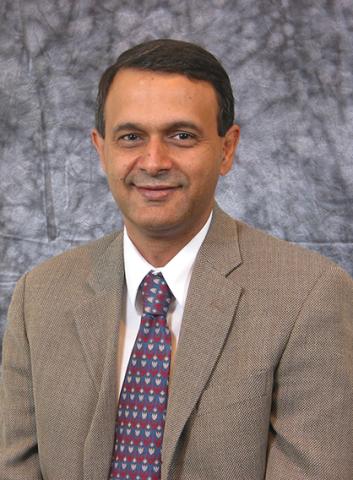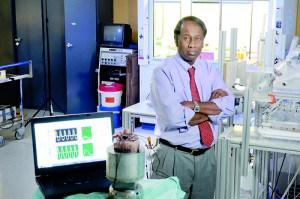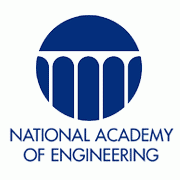College of Engineering faculty members Deepak Divan, Vigor Yang and Ajit P. Yoganathan were recently elected to the National Academy of Engineering (NAE).
Election to NAE is among the highest professional distinctions accorded to an engineer. Academy membership honors those who have made outstanding contributions to "engineering research, practice, or education, including, where appropriate, significant contributions to the engineering literature," and to the "pioneering of new and developing fields of technology, making major advancements in traditional fields of engineering, or developing/implementing innovative approaches to engineering education."
“Deepak, Vigor and Ajit have made exceptional contributions to their fields and to Georgia Tech,” said Gary S. May, dean of the College of Engineering. “This is a tremendous honor for these outstanding and deserving researchers. We are honored to have them as part of our engineering faculty.”
Divan was recognized by the NAE for “design and commercialization of advanced power conversion technologies for improved quality and controllability of the power grid.” He joined Georgia Tech in 2004 to create a strong program in the application of power electronics and related technologies to power systems and demanding defense and industrial applications. He has 40 issued and pending patents and has published about 250 technical papers, including more than 12 prize papers. Most recently he has been president, chief technical officer, and co-founder of Varentec, Inc., a company that builds power management and monitoring solutions for the electric grid.
NAE recognized Yang for his “contributions to combustion physics in propulsion systems and to aerospace engineering education.” Yang’s research encompasses a wide spectrum of topics, including combustion instabilities in propulsion systems, chemically reacting flows in air-breathing and rocket engines, combustion of energetic materials, high-pressure transport phenomena and combustion, active control of gas-turbine combustion dynamics, and nanotechnologies for propulsion and energetic applications. He has established, as the principal or co-principal investigator, more than 68 research projects dealing with fluid dynamics and combustion in aerospace propulsion and power systems.
Yoganathan was elected for his contributions to “improvements in the biomechanics of prosthetic heart valves and the development of heart repair devices.” He has published more than 250 peer-reviewed journal articles and book chapters in leading biomedical journals and books. He came to Georgia Tech in 1979, and his research deals with experimental and computational fluid mechanics as it pertains to artificial heart valves, left and right sides of the heart, and congenital heart diseases. His work involves the use of laser Doppler velocimetry, digital particle image velocimetry, Doppler ultrasound and magnetic resonance imaging to non-invasively study and quantify blood flow patterns in the cardiovascular system.
Additional Images



